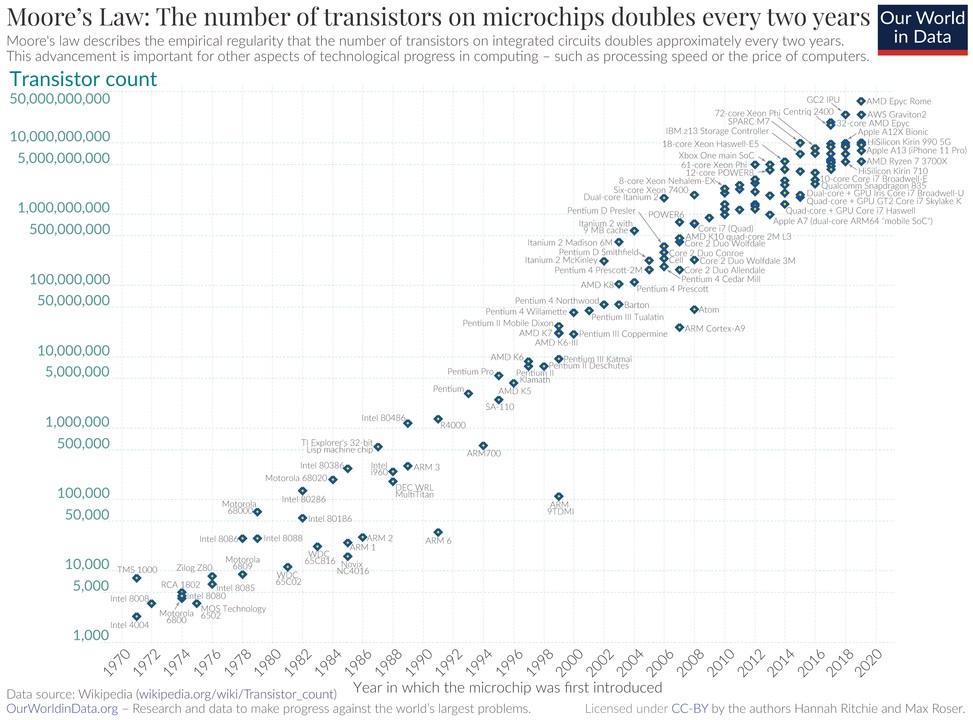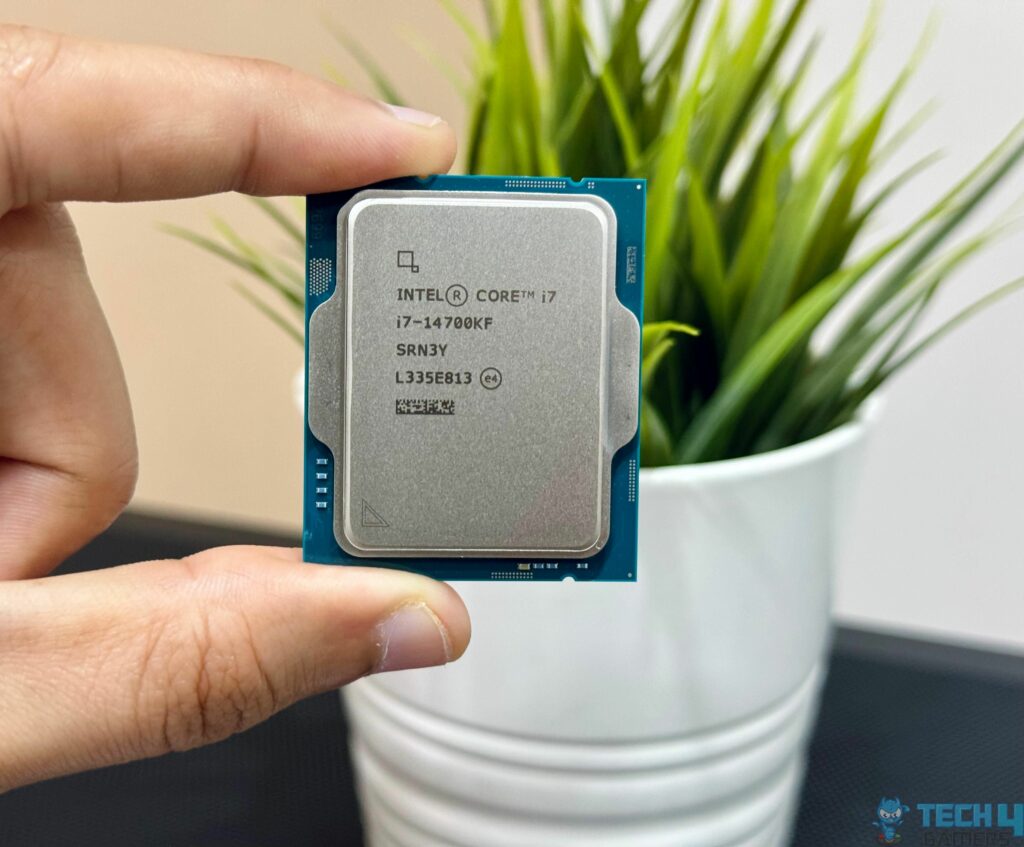- Moore’s Law was never meant to last forever; the ever-decreasing size of transistors is slowly coming to a halt due to the limitations of physics.
- Increasing the number of transistors in a chip is also difficult. This is because manufacturing costs also increase with more advanced semiconductor wafers.
- Prospects like AI (helping us develop better chips), Quantum computing (much faster—replacing traditional Binary computing), and improved transistor designs (improving efficiency) help us look ahead as Moore’s Law becomes “obsolete.”
Moore’s Law is probably the most well-known law in computer science and has been a guiding light for future advancements for decades. But is it still applicable? Is it really a law anymore? For decades, the law, which states that the number of transistors in a microchip doubles about every two years (while halving in cost), has held strongly in chips developed by different manufacturers, including Intel itself. But things have changed in the past decade or so.
Understanding Moore’s Law
I’ve already defined Moore’s Law, but where does it come from? Well, it was really a prediction before it became a law, made by Gordon Moore, the co-founder of Intel. His initial observation was that the number of transistors would double every year, which was revised to two years later.
Moore’s Law applies to CPUs and has held importance in the semiconductor industry since it was first presented. This has had an impact not just on computers, but also on increasing memory capacities, bigger and better camera sensors, and artificial intelligence.
Is Moore’s Law Really Dead?

From 1975, when Moore switched his observation to “doubling every two years,” Moore’s Law has in fact been widely observed. It was in 2015 when Gordon Moore himself said that due to certain limitations, the law would only hold for 5-10 years more. At the forefront of these limitations is the fact that “no exponential can go on forever,” as Moore said.
There are two reasons as to why Moore’s Law cannot go on for long:
Well, Science
As of 2024, the smallest semiconductor size is 3nm, with 2nm nodes expected to arrive soon. The progress being made is closing into the limitations of physics, where the elements used in the transistors (Silicon, Boron, and Phosphorus) become too packed. As the elements get closer in proximity, it is more probable that their electrons will flow abnormally and disrupt the normal functioning of transistors.
At such a small scale, manufacturing also becomes difficult, with increased risks of defects in the transistors.
Rise In Prices
Somehow, one-half of Moore’s Law is often forgotten when speaking of it. That is of the cost getting cut in half during the same two-year course.

This is far, unfortunately, not what the trend is now. Doubling the number of transistors isn’t cost-feasible anymore with the ever-increasing prices of raw materials used to build them. TSMC’s 3nm wafers now cost $20,000 a piece, which is double the cost of its 7nm node from 2018.
All that means that doubling the number of transistors in a chip will end up costing a lot more than the previous chip with fewer transistors.
So, What’s Next?

With Moore’s Law approaching obsolescence, what do we look forward to in terms of computer science advancement?
- Quantum Computing: It utilizes a unit called Qubit, which replaces the traditional Bit used in binary computing. Qubit can exist in multiple states at once, allowing multiple calculations at once, which means much more processing power.
- Better transistor designs: In the past decade, FinFETs emerged as a great innovation, with a 3D design that improves control over current, reduces the transistor gate length, and more. For the future, Vertical Transport Field Effect Transistors (VTFET) have been developed recently by IBM and Samsung that promise even better efficiency and performance.
- AI boom: AI and machine learning unlock new possibilities and can help us to design more efficient chips. It can do that by helping us design improved chip architectures and layouts.
Final Remarks
The long-running Moore’s Law, which was more of an observation, is slowly coming to a halt. We can only make transistors so small before physics becomes a limitation, and doubling the number of transistors no longer seems viable with the rising costs of raw materials and inflation.
However, increasing transistor count is not the only way to achieve better performance. The use of AI and better transistor designs can help us make better-performing chips without drastically increasing the transistor count. Meanwhile, quantum computing unlocks endless possibilities as it is capable of much faster processing than binary computing.
Thank you! Please share your positive feedback. 🔋
How could we improve this post? Please Help us. 😔
[Hardware Reviewer]
Hi! I’m Ali Tauseef, and I have been writing for Tech4Gamers since 2022. I love all things computer hardware but am particularly fond of CPUs and motherboards, and I like to stay up-to-date about the latest advancements in these worlds, and when possible, write about it. When I’m not doing that, I like to get into a little FPS action in CS2 or get lost in the vast world of RDR2.
Get In Touch: ali@tech4gamers.com


 Threads
Threads

